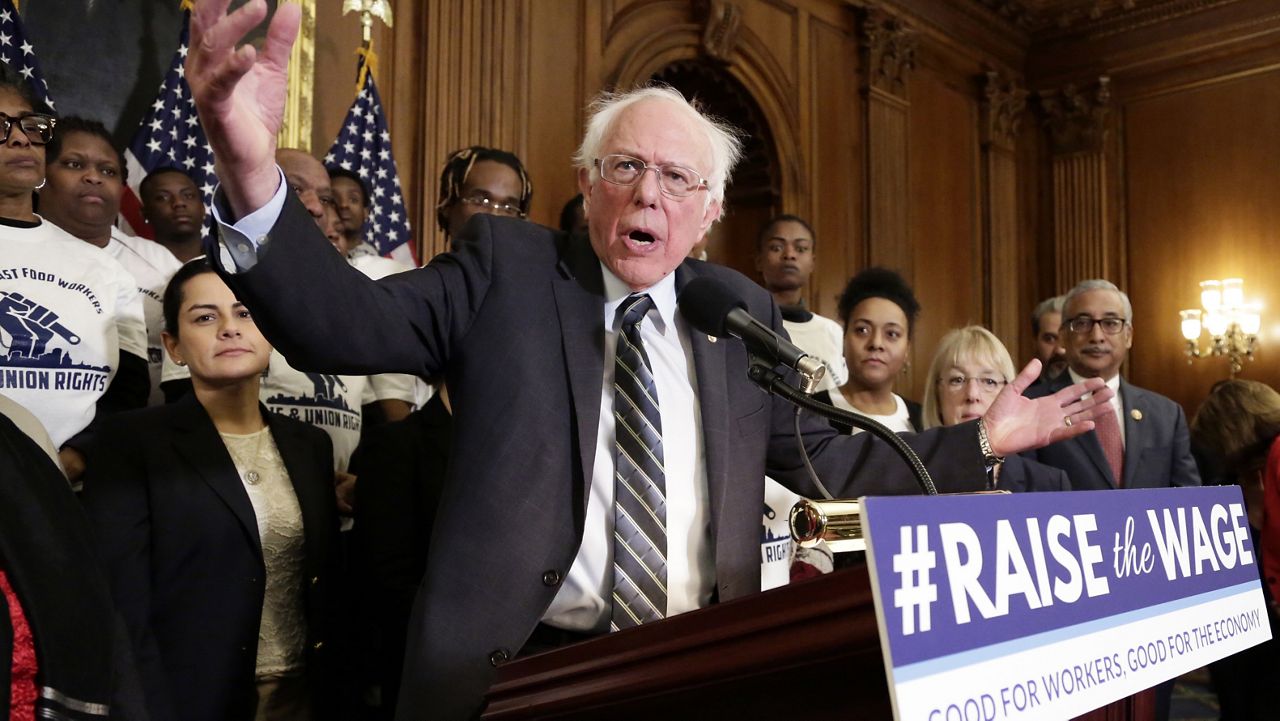Workers from fast food restaurants across the country – including McDonald’s, Wendy’s, and Burger King – went on strike Tuesday, demanding Congress increase the federal minimum wage as debate over the topic reaches a fever pitch nationwide.
The federal minimum wage currently stands at $7.25 and has remained unchanged since 2009, the longest period Congress has gone without adjusting the minimum wage since its creation in 1938.
Tuesday’s strike was put on with support from Fight for 15, an international organization that supports low-wage workers seeking a $15 minimum wage and union rights. Workers and activists hope the day calls attention to the disproportionate impact the minimum wage has on minority communities.
The date of the strike is no accident – workers are honoring Black History Month, which takes place in February, by "emphasizing the crisis among Black communities who have faced generations of low pay and insufficient protections on the job," a press release read in part.
"Today I’m striking for $15 because workers across this country are being paid starvation wages and not getting enough protections," Taiwanna Milligan, a McDonald's worker in Charleston, South Carolina, in a statement. "This Black History Month I want to continue the legacy of Black leaders in this country to speak out and demand the change we need."
On average, Black workers are paid 73 cents on the white dollar; Black men make only 71 cents of what their white male counterparts earn, with Black women making 64 cents to the white male dollar, according to data obtained from the Economic Policy Institute.
That disparity has only been deepened by the ongoing coronavirus pandemic, as minority groups are often overrepresented in frontline jobs; Black workers are more likely than any other workers to be in frontline jobs. These occupations primarily include childcare and social services, transit, and warehouse positions, but also extend into the fast food industry, according to the Center for Economic and Policy Research.
Workers went on strike across a symbolic 15 cities, including Atlanta, Charleston, Chicago, Detroit, Durham, Flint, Houston, Miami, Milwaukee, Oakland, Orlando, Raleigh, Sacramento, St. Louis, and Tampa.
"We're on strike to remind our employers that we are the company,” Cracker Barrel employee Eric Winston said in a video shared by the Durham, North Carolina chapter of Fight for 15. “Us, the workers, we are the engines that run your businesses. So protect us, respect our voices, and pay us enough now.”
As unions began to share videos of protests across the country, numerous lawmakers weighed in to offer their support for the striking workers — many of whom have also been outspoken advocates of a minimum wage hike.
“I stand in strong solidarity with fast food workers all over this country who are going on strike today to demand $15 an hour and a union,” Sen. Bernie Sanders (I-VT) wrote on Twitter. “The Senate must raise the minimum wage to $15 an hour with 51 votes this year.”
“The fight for a $15 minimum wage has been led by fast-food workers since the very beginning,” wrote Rep. Pramila Jayapal (D-WA). “I stand with them today as they strike for a long-overdue raise, and I’ll continue fighting alongside them to make the minimum wage a living wage.”
Sanders and Jayapal are both co-sponsors of the Raise the Wage Act of 2021, a piece of legislation put forward by a group of House and Senate Democrats in late January that calls for raising the federal minimum wage to $15 by 2025.
The bill’s fate is uncertain, as the House previously approved the same legislation last July before sending it to the Senate — where the GOP-controlled body failed to take action on the proposal. Now, with Democrats holding a razor-thin majority in the Senate, the proposal still might not pass: At least ten Republican Senators would need to support the increase in order to break a filibuster.
President Joe Biden included a $15 minimum wage as part of his $1.9 trillion American Rescue Plan proposal. The fate of this legislation is also up in the air, as lawmakers are currently in the midst of the complicated reconciliation process attempting to reach a budgetary agreement.
And at least two Democratic senators have voiced their displeasure at the inclusion of a $15 minimum wage hike provision in Biden’s plan. In an interview with Politico last week, Sen. Kyrsten Sinema (D-AZ) said she would oppose any measure not directly related to COVID relief within the American Rescue Plan.
"What's important is whether or not it's directly related to short-term COVID relief. And if it's not, then I am not going to support it in this legislation," Sinema told Politico. “The minimum wage provision is not appropriate for the reconciliation process. It is not a budget item. And it shouldn't be in there.”
Sinema’s announcement made her the second Senate Democrat to come out against the stimulus increase. Joe Manchin (D-WV) had previously voiced his opposition to increasing the minimum wage to $15, instead proposing a more “reasonable” hike to around $11 an hour in his home state of West Virginia.
Biden himself seems less than optimistic about the provision’s fate, telling CBS News earlier this month he doesn’t "think it’s going to survive" a vote in the Senate.



